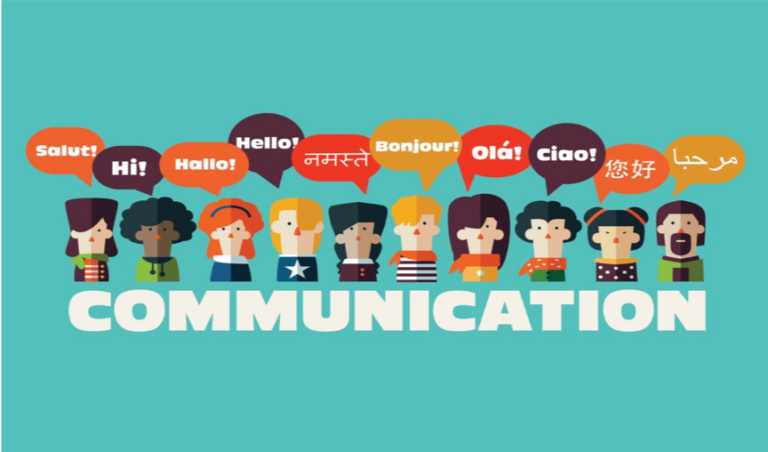Estimated reading time: 8 minutes
German, or Deutsch, is considered to be one of the tougher languages to learn – even for a polyglot. The reasons mentioned are many – gender for inanimate things, tougher verb conjugations, long words with difficult pronunciations, and complex grammar.
This is one of the reasons it is not as popular among language learners like say, French or Spanish. However, it is not all difficult, and there is quite a bit that is easy and fun. So if you would like to learn how to speak German without pulling your hair out, here are some simple but effective tips:
Consider your reasons for learning German
It is important to understand the underlying reason why you want to speak this language. Of course, you can’t have a quantifiable or measurable answer. It has rather to do with emotions and preferences. And this goes for any language – you need to know your reasons to learn Spanish, French, Russian or Chinese! The most common reasons people have are usually:
- To be able to learn German for its own sake – to know an extra language
- To understand German culture
- To read and appreciate German literature – Kafka, perhaps?
- To be able to converse with native Germans on your travels
- To work in Germany
- To speak with German friends or family members

It could be any of these, or something else. But you need to establish the reason. Once you understand why you want to learn German will be fun in addition to being challenging.
Immerse yourself in German
Immersive experiences always help you to learn faster – whether it’s a language, software, or a sport. You can create your multidimensional learning environment to have an immersive German language experience. You can do this by:
- Changing the language on your devices to German – or at least make it bilingual, so that you get more practice.
- Watch German TV shows and movies. Begin with English subtitles, and match the words you hear to the ones you read on the screen. The next step is to switch to German subtitles. Once you become more confident, you can try to watch without any subtitles
- Listen to German songs
- Browse websites in German; you could even translate Wikipedia pages into German. Of course, initially it may not be very easy for you to understand everything, but you will improve as the days go by.
- Write down a recipe that you want to try out, in German instead of English or your native tongue. There’s no easier way to learn the names of vegetables, meats, spices and condiments!
- Download a language learning app like Duolingo, Anki, Babbel, FluentU, Memrise, iStart German, or Rosetta Stone on your phone to learn to speak German fast. You can also create an account and learn from the website. Depending on your proficiency, the app will personalize your lessons. As you learn, the lessons will get tougher. Most of these sites and apps focus on helping you learn for practical use, like greeting someone, introducing yourself, buying a meal in a restaurant, asking for directions, shopping and traveling. You get ‘cash’ which you can use to buy extra lessons like idioms, colloquialisms – even pickup lines!
- Become a CouchSurfer and host German travelers at home. CouchSurfing is an innovative app that allows travelers to cut down their expenses by staying in the homes of other CouchSurfers, rather than in hotels. When you’re traveling, you can stay as someone’s guest as well. Having German guests in your home is an excellent opportunity for you to practice and learn the language.

Try these Learning Shortcuts
There are hacks available for everything – even learning languages. Here are some great shortcuts that can help you speed up the pace of your learning German:
- Spaced Repetition Systems: This is a method for learning vocabulary and phrases – your basic language skills in any language. It involves giving you a specific piece of information before you forget, so that it remains fresh in your mind at all times. For example, you see a new word (imagine there are flash cards); then you see it again before you have forgotten it; then you see it again in a couple of days, and then the next week, and so on. And yes, there is software available for it; it remembers what you know, and what you’ve forgotten, and even predicts when you’re likely to forget. Its algorithm schedules the words you should see at a specific time – just before you forget them.
- Mnemonics: This is nothing but creating a system that helps you remember things easily. For example, administering emergency first aid for someone in shock: If his face is red, raise his head, if his face is pale, raise his tail. You get the idea. While learning French, the conjugations of both avoir (to have) and etre (to be) had similar sounding words for the third person plural – ils ont, and ils sont. The way I remembered it was, Avoir, avoid ‘s’ – and it worked every time. Make up your own mnemonics, and things will be much easier.
- Pomodoro Technique: This basically helps you cut up your sessions into smaller, more manageable time periods; this enables you to focus better, and have a more productive learning experience. Developed by Francesco Cirillo in the 1980s, it involved working for 25 minutes, with short breaks in between.

Utilize Conversational Connectors
Every language has these handy, and crucial little phrases called conversational connectors. By using these, you have two chief advantages: you can sound more like a native speaker without using heavy vocabulary, and you need not feel awkward during conversations. Don’t expect to find them in books or apps, though! Remember they are not any new or different words; rather, just how you use the words you already know. Confused? Ok, let us look at an example.
Let’s say, somebody asks you, ‘how was your flight?’ Instead of simply saying ‘It was good, thank you’, add more to it with a couple of simple phrases. For example: ‘Thanks for asking. That’s a good question. It was good actually. I liked the food too’. You are basically saying the same thing, but yet you are saying something more – the conversation doesn’t end; the person you’re speaking to can then ask about what you ate, perhaps, and it can continue from there.
Read More: Benefits of learning a foreign language
Look for Native Speakers
This is something you need to do at the outset. You will be surprised to know that you can find quite a few native German speakers in your city. You can search online to connect with them. There are various sites like italki, where you can find both learners and tutors. You can engage a private tutor for either online lessons over Skype, or in person too. The rates are quite reasonable. The helloTalk app lets you interact with learners of German all over the world. Another thing you can do is look for German Language institutes; you can attend a class there, if you have one in your city. They are also bound to have several cultural events, movie showings, book releases and so on. Try to attend as many events as you can – it’s a wonderful opportunity to meet German speakers and get a taste of the culture as well.

Look at the Easy Stuff
I don’t really agree with the view held by many that German is extremely difficult; sure it has its peculiarities, but then so does any language! Here are some things you can focus on, and which will make learning German language much simpler:
- Unlike Chinese, you don’t have to worry about the intonation
- Unlike French, you don’t have to think about the word liaisons
- The words are not as difficult to pronounce as in Czech where several consonants are stringed together
- The letters are almost the same as in English
- Suffix pre-position and post-position confusion is not present, like for Hungarian
- It’s a phonetic language, so you pronounce the words exactly as they are spelled – there are very few exceptions. In fact, English pronunciations are more difficult – think of trough, though, psychology, and so on.
To Sum Up
English and German are more alike than you may think, as they both are Germanic languages. If you look at old Anglo-Saxon texts, they sound quite like German. Even Shakespearean English is closer to German roots. For example, the old English ‘thou’ is similar to the German ‘du’.
Just remember:
- Understand your reasons for learning German
- Create an Immersive learning experience at home
- Employ shortcuts to save time
- Conversational connectors are crucial to sound more confident and natural
- Find native speakers to converse and practice with
- Understand and remember that German is much easier to learn than you thought earlier.
Being fluent in German is not an impossible or even Herculean objective to achieve; especially now that you have the tools and the hacks to simplify your job. Viel Glück!
TranslateDay provides Legal Documents Translation for all kinds documents. It has been able build an untarnishable trust with their prompt and accurate interpretation. Translate Day employes the most experienced translators to bring clients a thorough translation with a touch of expertise.





